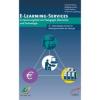E-XCELLENCE: Creating a standard of excellence in e-learning
A contemporary subject for EADTU is quality assurance in e-learning: we are coordinating the European project called E-xcellence in cooperation with the main stakeholders in the field. Experts from 12 different institutions in Europe are involved, coming from distance teaching universities, research and development institutes and organizations in the field of QA and accreditation.
Together we are creating a standard of excellence in e-learning under the E-xcellence project. The main objective of this project is the development of tools for:
• Assessment (programme and institutional level)
• Improvement (internal Quality Care System)
• Accreditation of excellence
The target group for quality assurance is in first line the educational institution. Teachers and developers of e-learning programmes can benefit from these e-learning specific quality indicators to improve their programmes. Next, by including employers and students in this project we will also emphasize the businesses and user related quality factors. Education will consequently be more in correspondence with the expectations of the students and business-life.
Approach
The project started with criteria development on e-learning excellence. This draft list of criteria is discussed with stakeholders like students, businesses, quality agencies and educational staff. Based on this feedback a final list of criteria and guidelines of validation methods is developed.
This final list of criteria will be translated first in parameters/indicators before a testing and validation procedure is developed. In correspondence to our second goal of using the criteria of excellence as a tool for improvement, also an internal improvement system (Quality Care System) will be developed as an institutional assessment tool.
In a pilot, the criteria of excellence in e-learning and validation methods are tested, both for quality assurance and accreditation purposes. The pilot must contribute to setting the final standards, indicators and approach in clear, unambiguous judgments about excellence.
Expected results
The result of accreditation on e-learning is an indication of the degree of excellence in LOF learning in distance HE at the institutional or curriculum level, and not a Yes-No judgement. The assessment will be combined with a label of excellence for institutions, as far as the “E-“ in e-learning is concerned. It will be a specific new scope, next to content, within the overall assessment process.
Improving e-learning will create better access, quality, competitiveness and attractiveness to European higher education at all levels and in all domains, both in mainstream and in continuing education. Ultimately, this will support the Bologna objectives (“e-Bologna”). It will ensure co-operation between European universities on the one hand and raise competitiveness on the other.
http://europa.eu.int/geninfo/disclaimer_de.htm
Together we are creating a standard of excellence in e-learning under the E-xcellence project. The main objective of this project is the development of tools for:
• Assessment (programme and institutional level)
• Improvement (internal Quality Care System)
• Accreditation of excellence
The target group for quality assurance is in first line the educational institution. Teachers and developers of e-learning programmes can benefit from these e-learning specific quality indicators to improve their programmes. Next, by including employers and students in this project we will also emphasize the businesses and user related quality factors. Education will consequently be more in correspondence with the expectations of the students and business-life.
Approach
The project started with criteria development on e-learning excellence. This draft list of criteria is discussed with stakeholders like students, businesses, quality agencies and educational staff. Based on this feedback a final list of criteria and guidelines of validation methods is developed.
This final list of criteria will be translated first in parameters/indicators before a testing and validation procedure is developed. In correspondence to our second goal of using the criteria of excellence as a tool for improvement, also an internal improvement system (Quality Care System) will be developed as an institutional assessment tool.
In a pilot, the criteria of excellence in e-learning and validation methods are tested, both for quality assurance and accreditation purposes. The pilot must contribute to setting the final standards, indicators and approach in clear, unambiguous judgments about excellence.
Expected results
The result of accreditation on e-learning is an indication of the degree of excellence in LOF learning in distance HE at the institutional or curriculum level, and not a Yes-No judgement. The assessment will be combined with a label of excellence for institutions, as far as the “E-“ in e-learning is concerned. It will be a specific new scope, next to content, within the overall assessment process.
Improving e-learning will create better access, quality, competitiveness and attractiveness to European higher education at all levels and in all domains, both in mainstream and in continuing education. Ultimately, this will support the Bologna objectives (“e-Bologna”). It will ensure co-operation between European universities on the one hand and raise competitiveness on the other.
http://europa.eu.int/geninfo/disclaimer_de.htm
ferdi - 29. Sep, 09:27


Trackback URL:
https://lernqualitaet.twoday.net/stories/1015775/modTrackback